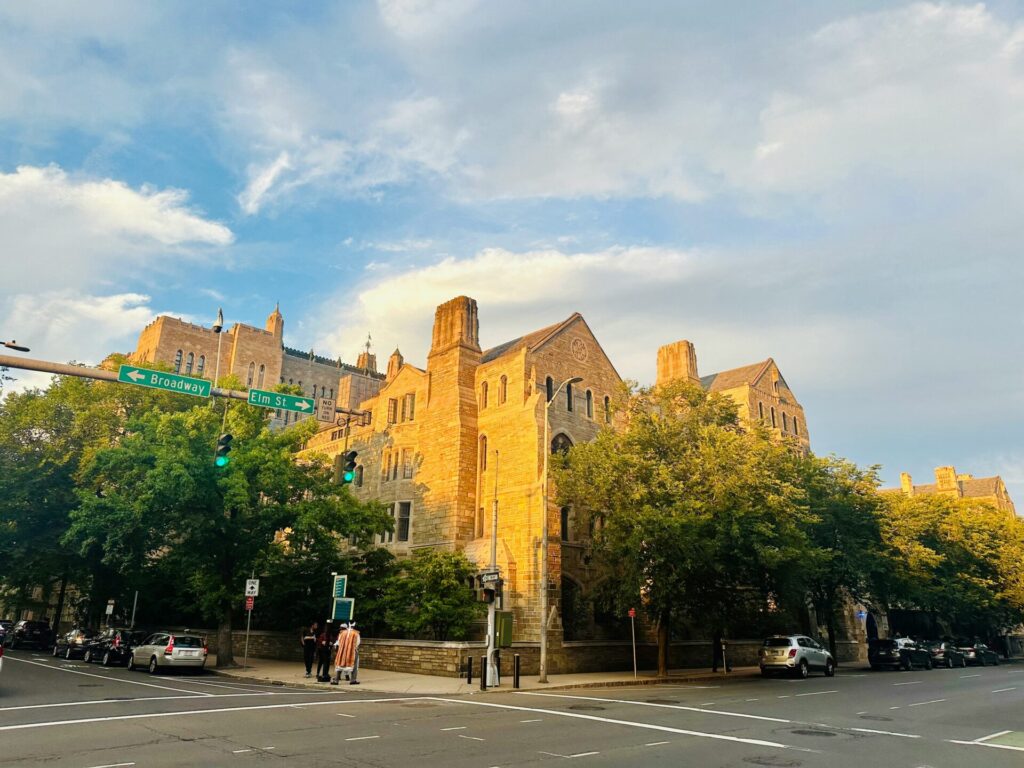The LSE Summer School stands out for its academic rigour, diverse course offerings, and vibrant international community. It offers over 100 courses, with the lowest-level (known as 100 level courses) available to high school students. Participants benefit from engaging lectures delivered by LSE faculty, interactive seminars, and the opportunity to earn academic credit. The program’s location in central London provides access to a wealth of cultural and professional experiences, enhancing the overall learning journey.
Timetable and Course Structure
The Summer School runs over nine weeks between June and August, divided into three sessions of three weeks each. Students can take one course per session but may enroll in multiple sessions to take more courses. Each course involves about 54 contact hours over three weeks, broken down into:
- 36 hours of lectures (usually 10am–1pm or 2pm–5pm daily)
- 18 hours of small group seminars (about 1.5 hours each)
- Plus recommended 2–3 hours daily of self-guided study.
Lectures and seminars are fixed in time and cannot be changed. Timetables are issued at the start of each session.
Spark and Social Programme
Beyond academics, LSE Summer School includes the Spark professional skills programme, designed to boost career prospects through workshops and activities. There is also a vibrant social programme that encourages students to explore London and build friendships, enriching the overall experience.
Sample 100-Level Courses at LSE Summer School
Here are examples of 100-level (introductory, first-year undergraduate equivalent) courses offered at the LSE Summer School, grouped by subject area:
Accounting
- Managerial Accounting and Financial Control (AC101)
- Principles of Accounting (AC110)
Economics
- Introductory Microeconomics (EC101)
- The Wealth (and Poverty) of Nations: Global Economic Development Past and Present (EC104)
Business and Management
- Consumer Behaviour: Behavioural Fundamentals for Marketing and Management (MG103)
- Power, Status and Conflict in Organisations (MG133)
International Relations, Government, Psychology, and Society
- Great Thinkers and Pivotal Leaders: Shaping the Global Order (IR100)
- Conflict and Power in the Contemporary Middle East (IR160)
Law
- European Union Law (LL100)
- Introduction to Corporate Law and Governance (LL135)
Research Methods, Data Science, and Mathematics
- Introduction to Statistics: Understanding the World through Data (ME116)
- Probability and Statistics for Economics and Econometrics (ME117)
Benefits of the London School of Economics Summer Program
Enrolling in the LSE Summer School offers numerous advantages. Academically, students engage with challenging coursework taught by esteemed faculty, gaining insights into their chosen fields. The program’s intensive format fosters critical thinking and analytical skills, preparing participants for future academic or professional pursuits.
The international nature of the program allows students to build a global network, enhancing cross-cultural communication and collaboration skills. Additionally, the program’s location in London offers unparalleled access to cultural landmarks, professional opportunities, and a dynamic urban environment.
Limitations of the London School of Economics Summer Program
While the LSE Summer School provides a rich academic experience, it may not be suitable for everyone. The program’s intensive nature requires dedicating a significant time commitment to a very niche programme area, and may be challenging for those unaccustomed to accelerated learning environments. If you’re a high school student, you must be able to show that you have proof of an offer of a place at university, meaning that the course is limited to older students on the cusp of leaving high school.
Furthermore, the cost of attendance, including tuition and living expenses in London, can be substantial. Prospective students should consider financial implications and explore scholarship opportunities. Additionally, course availability may be limited, and not all subjects of interest may be offered each session.
London School of Economics Summer Program vs Immerse Education London Programmes
While university-led programmes like those at LSE, UCL, and King’s provide valuable academic experiences, they often cater to students already enrolled at university or nearing the end of secondary school. For younger learners or those looking for a more supportive and personalised introduction to university-style study, Immerse Education offers a compelling alternative.
Immerse Education provides 2-week pre-university programs designed for high school students aged 13-18. Immerse’s courses are taught by expert tutors and emphasise personalised learning experiences. Both academic and career-focused courses are available, providing unparalleled flexibility for students searching for a summer programme that can truly boost their resumé where they most need it.
Career Insights courses include industry visits, work-based projects, and networking opportunities. Immerse’s London programmes take advantage of the city’s status as an industry hub, catering to aspiring journalists, bankers, medics, lawyers, software engineers, artists, engineers, filmmakers, architects and business owners.
Elsewhere in the UK, Immerse provides high school students with the chance to experience Oxbridge-style learning on campus at Oxford and Cambridge Universities. Academic Insights courses introduce students to university-level subjects, fostering academic curiosity, and developing critical thinking skills. Over 20 subjects are available, including our Oxford Economics course which explores key micro- and macroeconomic principles, global policy issues, and real-world applications. Unlike many traditional university summer schools, our class sizes are capped at ten students, allowing for tailored feedback, active discussion, and a genuinely interactive learning environment.
For students seeking a rigorous academic summer that balances subject mastery with practical skills and personal growth, Immerse Education is a strong alternative to the more lecture-based university programmes. It’s especially valuable for those who want to explore their subject through small-group seminars before making future study decisions.
Is the London School of Economics Summer Program Worth Attending?
Attending the LSE Summer School can be a valuable investment for students seeking academic advancement and international exposure. The program’s rigorous curriculum, taught by leading academics, provides a solid foundation in various disciplines. Additionally, the opportunity to engage with a diverse student body enhances cultural understanding and global networking.
However, the program’s intensity and associated costs require careful consideration. Students should assess their readiness for accelerated learning and explore financial planning options. Overall, for those prepared to meet its demands, the LSE Summer School offers a rewarding and transformative experience.
Other Alternatives to the London School of Economics Summer Program
For students exploring other summer study options in London, several reputable universities offer well-established programmes. Some programmes are exclusively for undergraduates, whilst others may welcome high schoolers who meet strict eligibility criteria.
- University College London (UCL) offers a broad summer school with courses in architecture, economics, biosciences, law, and more – designed and delivered by UCL academics and held on their central London campus.
- King’s College London provides two- and three-week modules across arts, humanities, health sciences, and social science subjects, with a strong emphasis on cultural immersion and global learning.
- Imperial College London runs a Global Summer School for pre-university students focused on STEM subjects, offering hands-on workshops, lab sessions, and real-world applications.
- Queen Mary University of London offers courses in law, international relations, English, and more, drawing on its strength in research and East London campus culture.
These alternatives vary in focus, format, and target audience – from undergraduate-level academic deep-dives to pre-university preparation. Prospective students should explore each offering’s structure, teaching style, and extracurriculars to find a programme that matches their goals, academic stage, and interests.
Join the Immerse Education 2025 Essay Competition
Follow the instructions to write and submit your best essay for a chance to be awarded a 100% scholarship.

How to Apply for the London School of Economics Summer Program
Applying to the LSE Summer School involves several steps. Prospective students should first select their desired course(s) and review the specific prerequisites and English language requirements.
The application process includes submitting an online form, academic transcripts, and proof of English proficiency if applicable. A non-refundable application fee is also required.
Applications are reviewed on a rolling basis, and decisions are typically communicated within 10 working days. Early application is advised due to limited course capacities. Detailed information and application forms are available on the LSE Summer School website.
Final thoughts
The London School of Economics summer school is a fantastic opportunity for students seeking university-level study in one of the world’s leading institutions. For learners looking for a more personalised experience, Immerse Education provides a strong alternative. With smaller class sizes, expert tutors, and a focus on discussion-led learning, our London programmes give students a meaningful and confidence-building introduction to Banking, Business, and related fields. Whether you’re preparing for university or simply curious to learn more in a supportive academic environment, Immerse offers a different but equally valuable route to success.































